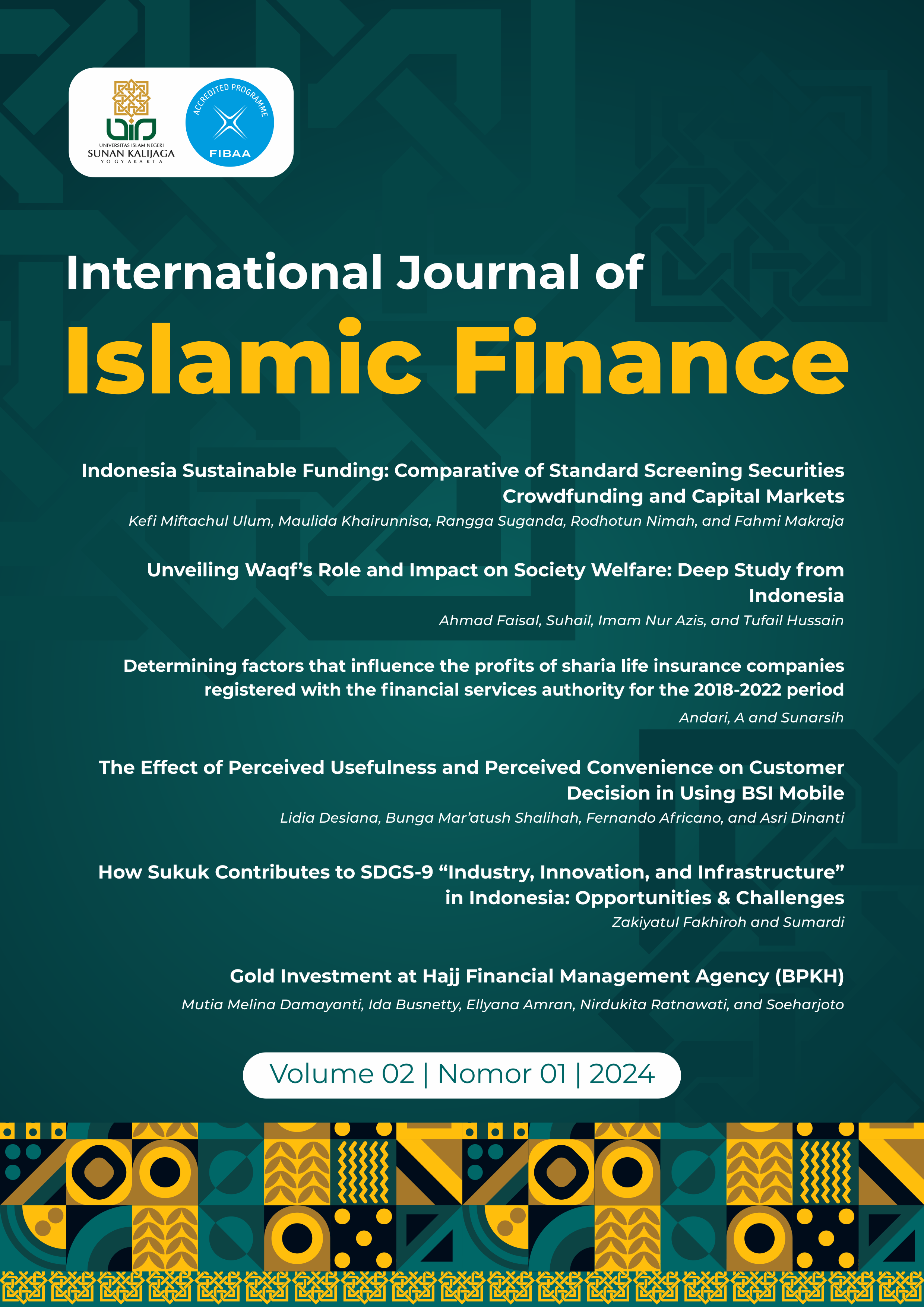How Sukuk Contibutes to SDG's-9 “Industry, Innovation and Infrastruktur” In Indonesia: Opportunities & Challenges
Islamic Finance, sukuk, Sdgs
DOI:
https://doi.org/10.14421/ijif.v2i1.2272Keywords:
Sukuk, SDG 9, Islamic Finance, InfrastructureAbstract
Background: The need for infrastructure spending in Indonesia is estimated to reach IDR 6,421 trillion or 6.08% of GDP to achieve medium economic growth in 2020-2024. However, the realization of spending only reached 3.46% of GDP, indicating a large gap in infrastructure financing. Alternative funding sources are needed to support national development.
Objectives: This study explores the contribution of sukuk to the achievement of SDG 9, focusing on the opportunities and challenges of its management, as well as optimization strategies for the government and corporations.
Novelty: This study fills the literature gap by linking sukuk to SDG 9, expanding the discourse from the financial aspect to the contribution to sustainable development. These findings are expected to contribute to the ongoing debate on the effectiveness of Islamic finance in supporting sustainable development.
Research Methodology / Design: Using a descriptive qualitative approach, this study analyzes secondary data from the literature related to sukuk in Indonesia. The data is analyzed descriptively to present facts and findings objectively.
Findings: Sukuk contributes significantly to the development of quality infrastructure and supports inclusive industrialization by providing access to finance. Based on the analysis, the opportunities for sukuk to achieve SDG 9 are the growth of the sharia economy (especially sharia finance), investor interest in Indonesian sukuk, the large population of Indonesian Muslims, supporting infrastructure development programs. In addition, there are also challenges that need to be faced such as credit risk, limited information on the sharia capital market, lack of understanding of issuers, investors and the public about sukuk, limited traded instruments, and liquidity risk.
Implication: This study highlights theoretical implications by expanding the understanding of the role of Islamic finance in achieving sustainable development goals. Practically, this study provides insight for policy makers and corporate managers on how to utilize sukuk for sustainable industrial and infrastructure development. Recommendations include improving the regulatory framework, increasing awareness of sukuk, and encouraging an environment that supports the issuance and management of sukuk.





